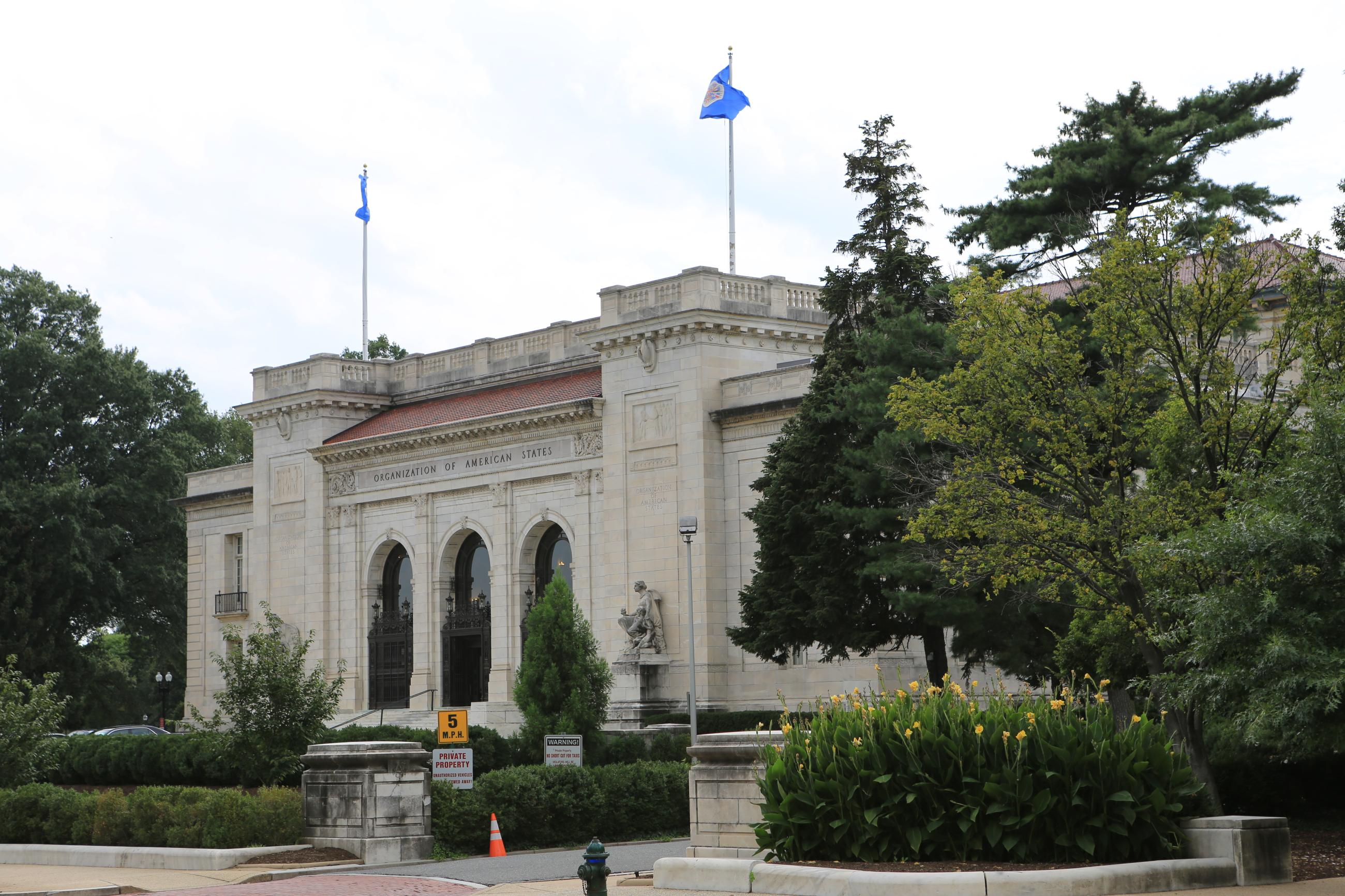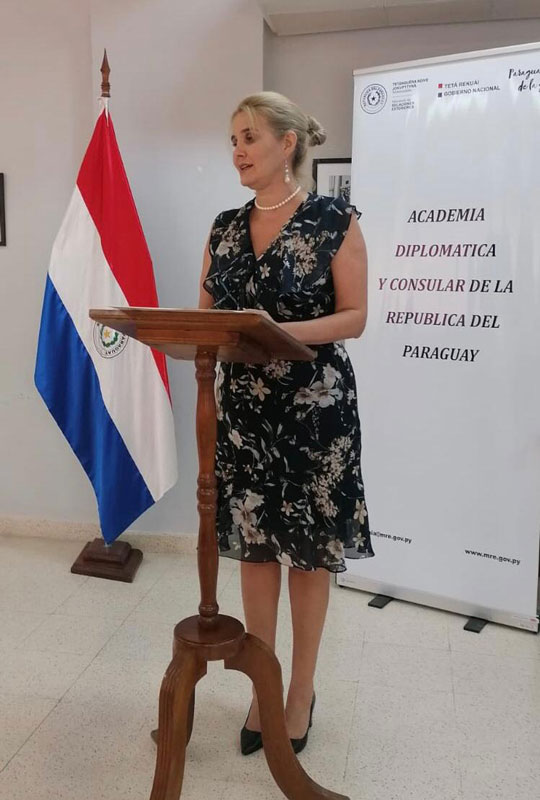Paraguay Insists on National Sovereignty while Latin neighbors and US insist on LGBTQ agenda
US joins Latin America to enshrine LGBTQ rights in regional accord.

Organization of American States, Washington DC. Photo courtesy of Peter Stehlig, Wikimedia Commons.
At the 52nd Assembly of the Organization of American States, Paraguay’s representative expressed strong reservations about the regional bloc’s terminology regarding sexuality and women’s rights that she says contravene her country’s own constitutional protections for life and family.
"Paraguay wishes to express, once again, that, although it understands that other delegations hold different positions on the aforementioned principles, there is no consensus on certain terms and expressions, which are intended to be validated," said Ambassador Helena Felip Salazar on October 9 in Lima, Peru, in reference to a document on human rights that was considered at the meeting.
Paraguay’s national delegation was led by Foreign Minister Julio Cesar Arriola.
“The Government of the Republic of Paraguay, in compliance with the principles established by its National Constitution, considers the family as the fundamental pillar of society and the right to life as inherent to the human person from its conception, as it is enshrined in Article 4 of the American Convention on Human Rights,” said Felip on October 7.
Felip Salazar said that the adoption of the OAS language on human rights would violate Paraguay’s criminal code. She serves as the General Director of Multilateral Policy in the Paraguayan foreign ministry.

Ambassador Helena Felip Salazar addresses fellow Paraguayan diplomats.
In his speech before the assembly on October 6, U.S. Secretary of State Anthony Blinken made clear the Biden administration’s focus on human rights and LGBTQI+ doctrine when he deplored the consequences of COVID restrictions on the economy of Latin America, which he said have “fallen disproportionately on communities that have historically been marginalized and underserved.”
Blinken identified groups of particular concern: “People of African descent, and other racial and ethnic minorities, Indigenous communities. Women and girls. People with disabilities. LGBTQI+ people.”
“Advancing equity is also crucial to building durable democracy,” said Blinken, while saying that he has appointed his department’s “first chief diversity and inclusion officer to help drive progress toward a more diverse institution that actually looks like the country it represents…”
Paraguay joined Guatemala in making clear its reservations about the draft declaration of the Lima assembly, titled “Together against Inequality and Discrimination” which was forwarded for adoption by the entire OAS. The reservations of the Paraguayan delegation were recorded in footnotes on the use of certain terms and expressions in the approved documents.
The document condemned any “distinction, exclusion, restriction, or preferences, and, in particular, any kind of violence” based on “race, color, sex, gender, language, religion, ethnicity, age, political or other opinion, national or social origin, economic status, birth or other social status, disability, sexual orientation and gender identity or expression…”
Paraguay called for excising the phrase “sexual orientation and gender identity or expression” from the above.
Where the document called for applying a “gender and intersectional perspective” on public policies and programs implemented by the member states, Paraguay called for its deletion.
According to the Center for Intersectional Justice, "The concept of intersectionality describes the ways in which systems of inequality based on gender, race, ethnicity, sexual orientation, gender identity, disability, class and other forms of discrimination ‘intersect’ to create unique dynamics and effects.”
In his June 15 “Executive Order on Advancing Equality for Lesbian, Gay, Bisexual, Transgender, Queer, and Intersex Individuals,” President Joseph Biden made clear his administration’s policy to “combat unlawful discrimination and eliminate disparities that harm LGBTQI+ individuals and their families, defend their rights and safety, and pursue a comprehensive approach to delivering the full promise of equality for LGBTQI+ individuals,” consistent with his previous Executive Order on Preventing and Combating Discrimination on the Basis of Gender Identity or Sexual Orientation.
This policy has a component in foreign affairs, in which the Biden administration is set upon addressing how people in other countries address their own and others’ sexual practices. “To address so-called conversion therapy around the world,” the Biden administration directs the government, including the U.S. Agency for International Development, “to promote an end to its use around the world. “
It directs the State Department to leverage its foreign assistance, including food assistance, and use its membership in multilateral banks and international development institutions to prevent the use of so-called conversion therapy, as well as to help ensure that United States foreign assistance programs do not use foreign assistance funds for so-called conversion therapy.”
Moreover, the executive order directs American embassies to inform the government about the “practice and incidence of so-called conversion therapy” as part of its reports on human rights practices.